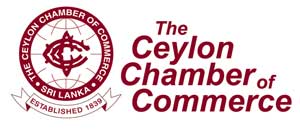Monday Feb 23, 2026
Monday Feb 23, 2026
Wednesday, 10 June 2015 00:00 - - {{hitsCtrl.values.hits}}
By Ceylon Chamber of Commerce
There have been repeated cases in recent history where Sri Lankan exports to the European Union (EU) were rejected, temporary banned or preferential access withdrawn due to non-compliance with EU standards.
Although there are various reasons underlying the withdrawal of GSP plus and the recent ban on fisheries, the bottom-line remains clear; that is non-compliance with EU standards and regulations. As a result Sri Lankan exports to the EU has suffered a great deal. Once lost regaining the market share becomes a challenge. 
Unfortunately, Sri Lanka has been issued yet another non-compliance warning by the EU based on phytosanitary standards, stating that Sri Lankan wood packaging material (WPM) is not treated using proper treatment methods. Continuous non-compliance could set Sri Lankan exports a bad track record further affecting an already struggling export industry.
EU Standards
EU plant health legislation considers compliance with phytosanitary standards to be important for two reasons; 1) to prevent introduction and spreading of organisms that are harmful to plant/plant products and 2) to regulate imports from developing countries in line with international plant health standards.
The EU requirements for WPM are based on the International Standard for Phytosanitary Measures No. 15 (ISPM 15), entered into effect from 1 March 2015. ISPM 15 regulation help prevent global spread of plant pests and diseases through usage of treated WPM.
EU requirements of ISPM 15 allows following treatment measurements for WPM; (i) Fumigation / heat treatment with methyl bromide (in line with ISPM15 procedures) (ii) officially marked with the ISPM15 stamp and (iii) all WPM imported into the EU will have to be debarked (from March 2006) to reduce re-infestation.
Advantage of using the ISPM 15 mark on WPM is that it allows for easy verification at the point of export and import. It is a paperless system which verifies that the WPM has met with the necessary treatment in compliance with ISPM 15, which is accepted by all signatory countries. It also allows for the free movement of WPM regardless of the country of origin. A unit of WPM that has been treated in accordance with the ISPM 15 standard can be reused throughout its usable life without requiring retreatment or reapplication of the mark.
Complying with ISPM 15: The challenge for exporters
As part of the United Nations Food & Agriculture Organization (FAO), the International Plant Protection Convention (IPPC) controls the regulations through the cooperation of member governments of the UN. In Sri Lanka the regulatory authority is the National Plant Quarantine Association (NPQA). 
The NPQA has informed exporters to use only registered and recommended treatment providers of WPM. NPQA as the regulatory authority should undertake regular monitoring, auditing (including surprise audit) of facilities and the production processes to ensure that the yards of the registered treatment providers comply with the standards stipulated by ISPM 15.
Opening all cargo for examination prior to being exported is not a practical solution as the risk assessment process causes long delays in the examination process and this penalises fully compliant exporters.
The NPQA together with Sri Lanka Customs should come up with a streamlined process to encourage exporters to use WPM with ISPM 15. Hence a penalty such as black listing and banning of reregistration should be implemented with support of the regulatory framework for the violation of the standards stipulated under ISPM 15. In the medium term Sri Lanka Customs could come up with a suitable process to ban the use of untreated WPM in exports.
The urgent necessity of using WPM with ISPM 15 standard was discussed at a recent forum and it was insisted that a list of registered treatment providers be published on the NPQS website and to be shared with the Sri Lanka Export Development Board and the Ceylon Chamber of Commerce. Thereafter the list to be updated on a quarterly basis.
Even if Sri Lanka adheres to ISPM 15 for the use of WPM, there is another obstacle to overcome in the near future. One of the key treatment methods recommended by ISPM 15 involves fumigation of WPM with methyl bromide.
Methyl bromide is an ozone-depleting substance and according to the Montreal Protocol (to which Sri Lanka is signatory), all fumigation/treatments using methyl bromide will be fully phased out by the end of 2015. Sri Lankan exporters will have to look for alternative methods such as using heat-treated pallets as opposed to methyl bromide and other treatment mechanisms, recommended by NPQA such as corrugated cartons or plastic pallets.
Exporters need to urgently recognise the importance of complying with ISPM 15 and information gaps on this issue must be addressed. Otherwise the country’s exports to the EU could be caught up in a further challenge.